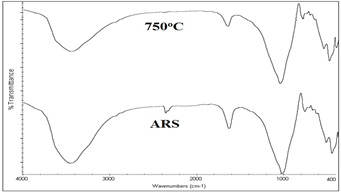Vol. 1, Issue 4 (2013)
FT-IR Spectroscopic Investigations of some Archaeological Pottery Excavated from Thamaraikulam, Dindigul Dist, Tamil Nadu, India.
Author(s): G.Raja Annamalai, R.Ravisankar, A.Naseerutheen, A. Chandrasekaran
Abstract: The FT-IR spectroscopic analysis was performed to characterize pottery corresponding to the Iron Age grave period from Thamaraikulam village, Dindigul District, Tamil Nadu, India. The main goal was to point out the potentiality of the Fourier Transform Infrared spectroscopic (FT-IR) technique as a non-invasive analytical tool in archaeometry. The elemental compositions and its various mineralogical phases and firing temperature of red, red and black and black polished pottery samples were measured. The raw material, the firing temperature and firing conditions were identified by presence of mineralogical composition in the samples by FT-IR study. The results of FT-IR study revealed that archeological pottery was fired to a temperature greater than 750 °C.

Fig. 1: Representative FT-IR spectrums of as received and refired potsherds of Thamaraikulam.
Pages: 130-135 | 1626 Views 51 Downloads
download (3531KB)
How to cite this article:
G.Raja Annamalai, R.Ravisankar, A.Naseerutheen, A. Chandrasekaran. FT-IR Spectroscopic Investigations of some Archaeological Pottery Excavated from Thamaraikulam, Dindigul Dist, Tamil Nadu, India.. Int J Chem Stud 2013;1(4):130-135.






